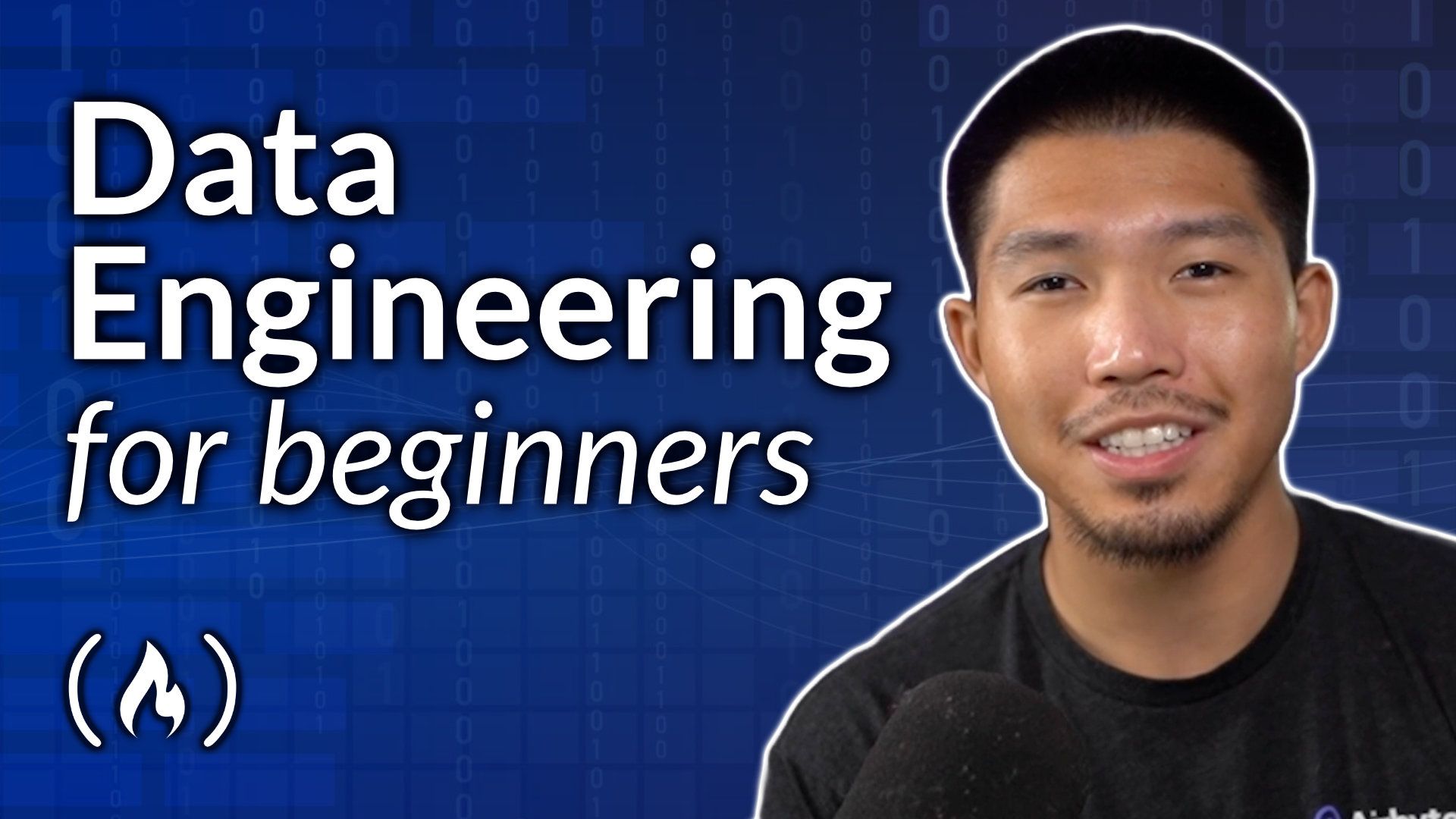Introduction to freeCodeCamp's Data Engineering Video Course
Data Engineering is a vital field in the tech industry focused on designing, building, and maintaining systems that collect, process, and analyze large volumes of data.
We just posted a course on the freeCodeCamp.org YouTube channel all about data engineering, designed to cater to both beginners and intermediate learners. This course, created by Justin Chau, aims to equip learners with the necessary skills and knowledge to excel in the rapidly evolving field of Data Engineering.
Data Engineering plays a crucial role in enabling businesses to make informed decisions by providing timely and accurate data. Data Engineers are tasked with creating scalable and efficient pipelines that transport and transform data into a usable format for analysis.
This course is structured to provide in-depth knowledge and hands-on experience in key areas of Data Engineering. Here's a description of the sections of the course:
1. Introduction
- Course Overview: This introductory section sets the stage, explaining the course's objectives, the importance of data engineering, and what students can expect to learn. It’s a roadmap for the comprehensive journey ahead in the world of data.
2. Why Data Engineering
- Understanding the Field: This segment delves into the significance of Data Engineering in the modern tech landscape. It covers the role of data engineers, the growing demand in various industries, and the potential career opportunities and advancements that this field offers.
3. Docker
- Docker Essentials: Docker is a pivotal tool in data engineering for creating, deploying, and running applications using containers. This section covers the basics of Docker, how to containerize applications, manage images, and use docker-compose, providing a practical approach to these essential skills.
4. SQL
- SQL Proficiency: SQL (Structured Query Language) is fundamental for interacting with databases. This part of the course covers basic to advanced SQL techniques, necessary for querying, updating, and managing data effectively. It includes practical examples to illustrate complex queries, data manipulation, and optimization techniques.
5. Building a Data Pipeline from Scratch
- Pipeline Development Skills: Data pipelines are crucial for moving and transforming data. This module guides students through the process of building a data pipeline from the ground up, covering the various stages of data collection, transformation, and loading (ETL), and the tools and practices used in the industry.
6. dbt
- Data Transformation with dbt: dbt (data build tool) is a command-line tool that enables data analysts and engineers to transform data in their warehouse more effectively. This section focuses on how to use dbt to write modular SQL queries, test data models, and document data processes.
7. CRON Job
- Task Scheduling with CRON: CRON is used for scheduling tasks to run at fixed times or intervals. This module explains how CRON jobs are used in data engineering for automating repetitive tasks like running scripts, updating databases, and triggering pipelines, ensuring efficient and timely data processes.
8. Airflow
- Workflow Orchestration with Airflow: Apache Airflow is an open-source platform used to programmatically author, schedule, and monitor workflows. This part of the course explores how to use Airflow for managing complex data workflows, ensuring smooth and efficient automation of data pipelines.
9. Airbyte
- Data Integration Using Airbyte: Airbyte is an open-source data integration tool that helps in consolidating data from various sources. This segment introduces Airbyte, demonstrating its capabilities in extracting and loading data, and its role in simplifying the data integration process.
10. Outro
- Concluding the Journey: The final section summarizes the key learnings, emphasizing the practical applications of the skills acquired. It also provides guidance on next steps for further learning and advancement in the field of Data Engineering.
This structured approach ensures that learners not only understand the theoretical aspects of Data Engineering but also gain practical experience with the tools and technologies that are vital in the field.
Watch the full course on the freeCodeCamp.org YouTube channel (3-hour watch).
